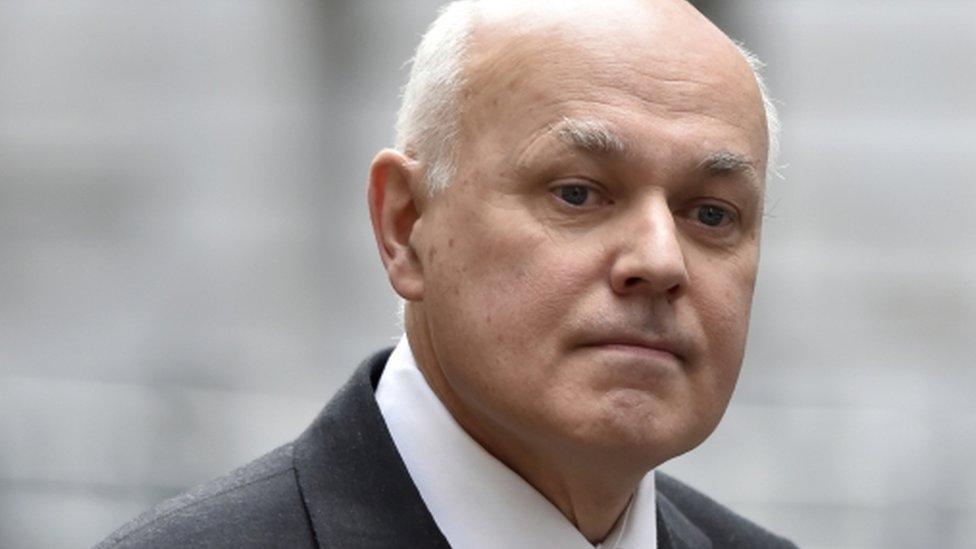How damaged is George Osborne by IDS resignation?
- Published
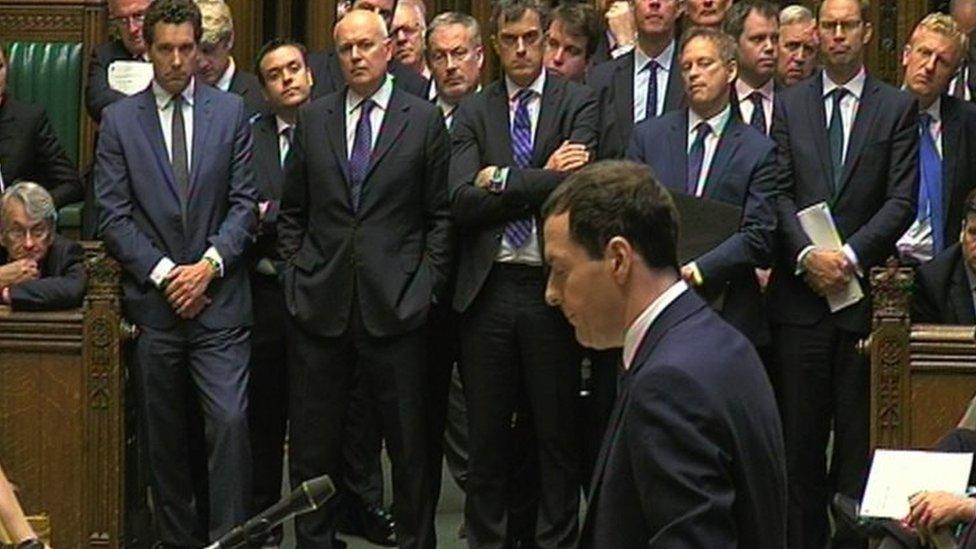
George Osborne: chief tactician and patron, a man whose word makes or wrecks careers.
That was the view of many Tory MPs for a very long time.
Now, many doubt he will ever be their leader, or even the chancellor much longer.
It's not that they think David Cameron is poised to sack him or that he's about to resign, as Labour demand.
They simply believe a swift leadership election is highly likely whatever the result of 23 June's EU referendum.
If it does come that soon there will be, one predicts, a "genocide of the Cameroons and Osbornites".
A stubbornly enduring deficit, a tax credit U-turn, and the sheer numbers of MPs who have chosen to back a leave vote at the referendum have seen Osborne's authority leak.
A weekend of melodrama has - in one Tory MP's view - burst the dam.
More concessions
Cameron and Osborne's decade long effort to present their leadership as an exercise in compassionate politics is under direct threat.
One backbencher, Sarah Wollaston, went on the Today programme to demand a signal Osborne was willing to rethink his Budget, and suggest that manifesto guarantees to protect pensioners could be dropped.
And there is a coalition at work - opposition parties, Eurosceptic and centrist Tory backbenchers - that can overturn the government's thin majority and stop it delivering manifesto commitments.
They are eyeing two possible votes on Tuesday night, both demanding Britain should be able to set VAT rates free of EU influence, as a chance to flex their muscles.
As political advisor, MP, precociously young shadow chancellor and minister, Osborne has fought and won more scraps than most.
If some of his allies need him more than they love him, his network spreads far and wide.
Crucially, Number 10 are not about to restage the Blair era battles between PM and Chancellor.
So he will fight, but many more concessions to his critics could cost his dearly.
- Published21 March 2016
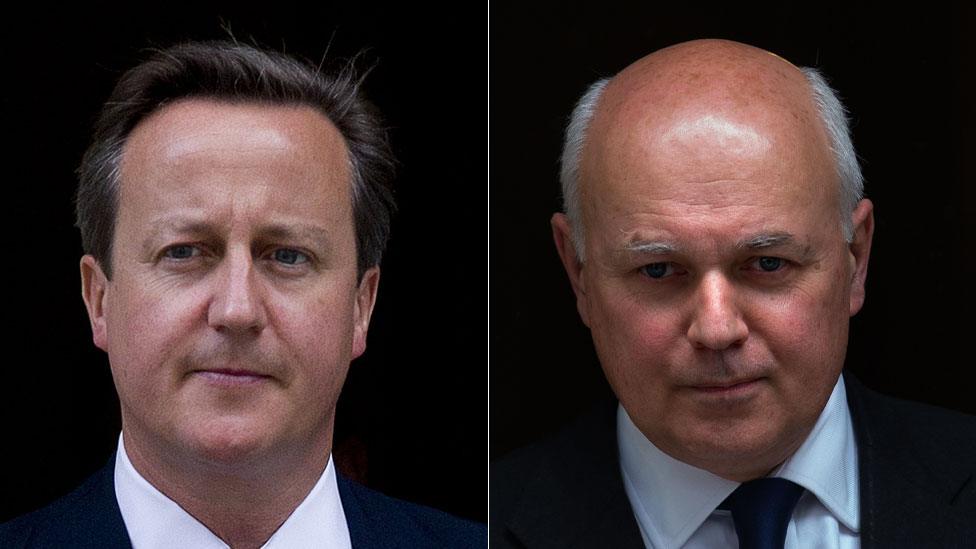
- Published20 March 2016
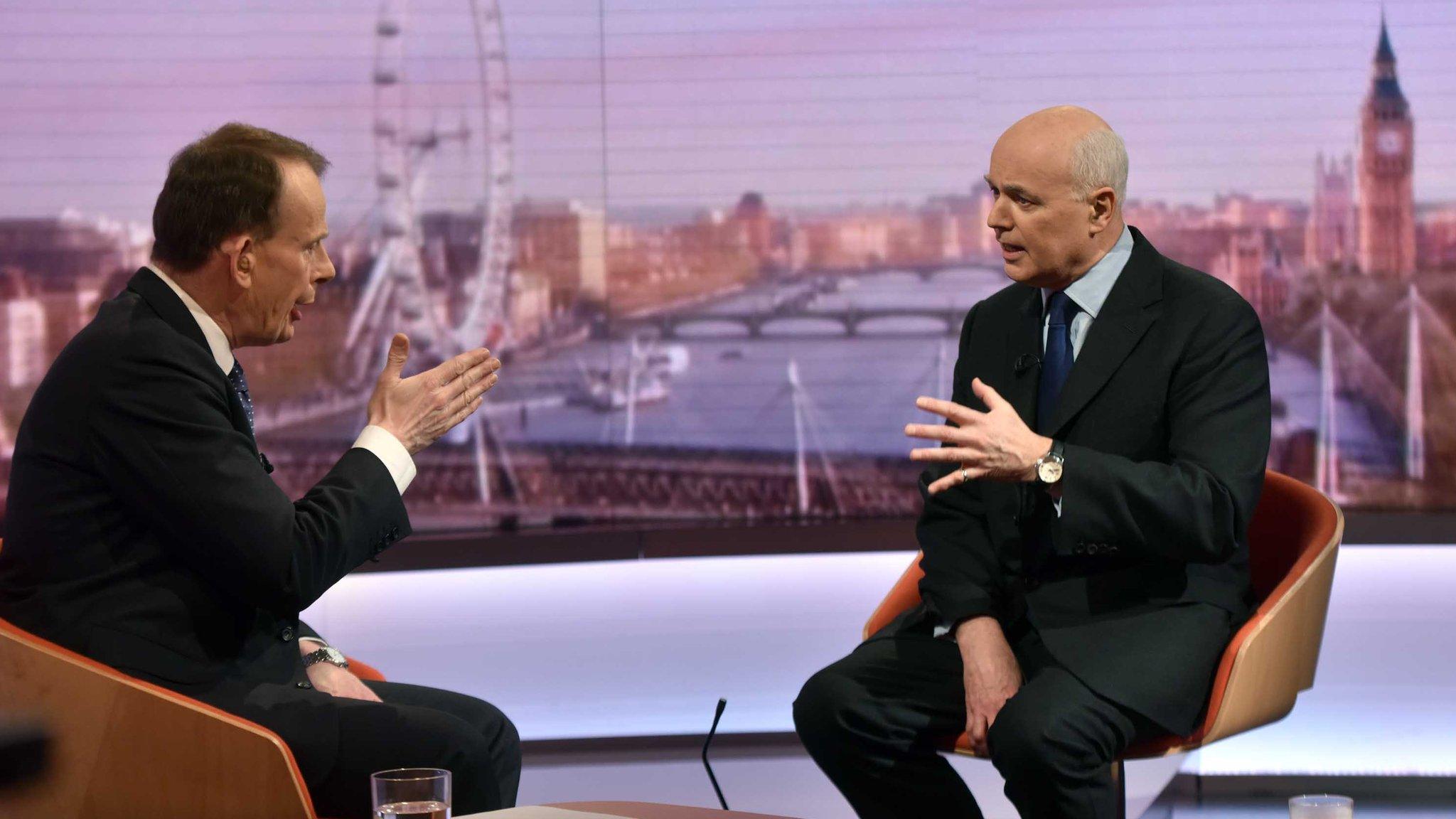
- Published19 March 2016
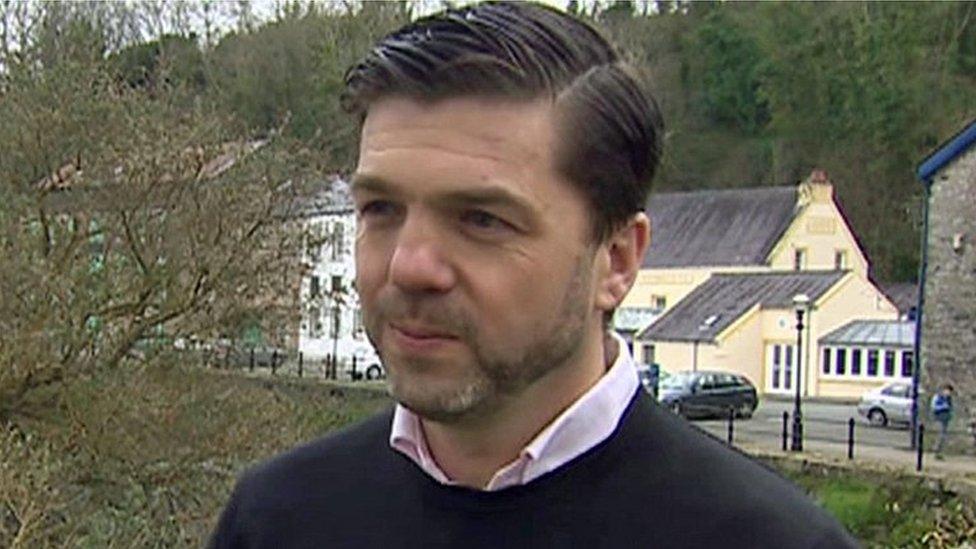
- Published19 March 2016
